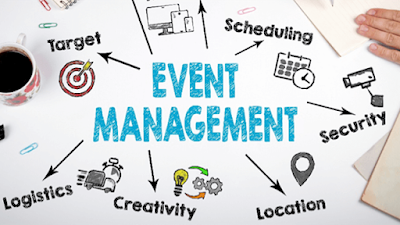Creating Unforgettable Experiences: The Power of Effective Event Management
Introduction :
Event management is the art of creating and delivering unforgettable experiences. It involves planning, organizing, and executing events that leave a lasting impression on attendees. Effective event management requires attention to detail, creativity, and a deep understanding of the needs and expectations of the audience. In this blog post, we will discuss the power of effective event management in creating unforgettable experiences.
Why Event Management Matters :
Events are a powerful tool for businesses, organizations, and individuals to engage with their audience. They can be used for a variety of purposes, such as product launches, conferences, trade shows, weddings, and more. The success of an event is measured by its ability to achieve its goals and objectives. Effective event management is crucial to achieving these goals.
Event management involves a wide range of tasks, such as selecting a venue, creating a theme, designing a program, coordinating with vendors, managing logistics, and more. Each of these tasks requires careful planning and execution. An effective event manager should have excellent organizational skills, be detail-oriented, and have a creative mindset.
Creating Unforgettable Experiences :
The ultimate goal of event management is to create unforgettable experiences for attendees. The experience begins the moment the attendee hears about the event and continues through registration, arrival, participation, and departure. Each touch point is an opportunity to create a positive impression and build a lasting relationship with the attendee.
To create an unforgettable experience, event managers must focus on the following:
Understanding the Audience :
The first step in creating an unforgettable experience is to understand the audience. Event managers should research the demographics, interests, and preferences of their target audience. This information can be used to create a theme, design a program, and select activities that resonate with attendees.
For example, a tech conference targeting millennials may have a different theme and program than a medical conference targeting baby boomers. By understanding the audience, event managers can tailor the event to their specific needs and preferences.
Creating a Theme :
A theme is a unifying concept that ties all aspects of the event together. It can be based on a particular industry, trend, or idea. The theme should be reflected in the design, program, activities, and marketing of the event. A well-executed theme can create a sense of excitement and anticipation among attendees.
For example, a music festival with a beach theme may have sand-filled lounges, palm trees, and beach umbrellas to create a relaxed atmosphere. The theme can also be reflected in the music lineup, with bands that play beach-inspired tunes.
Designing a Program :
The program is the heart of the event. It includes a schedule of activities, speakers, and entertainment. The program should be designed with the audience in mind, providing value and engagement at every stage.
For example, a business conference may have keynote speakers, breakout sessions, and networking opportunities to provide value to attendees. An entertainment event may have a lineup of artists, performers, and activities that keep attendees engaged and entertained throughout the event.
Engaging Activities :
Engaging activities are an essential part of any event. They provide opportunities for attendees to interact with each other and the event itself. Engaging activities can include games, contests, workshops, and more.
For example, a trade show may have interactive booths that allow attendees to try out products, speak with experts, and participate in contests. An outdoor festival may have games and activities that appeal to all ages, such as a giant slide or a photo booth.
Logistics Management :
Effective logistics management is critical to the success of an event. It involves planning and coordinating all aspects of the event, including transportation, accommodations, catering, and more. Logistics management requires attention to detail, problem-solving skills, and the ability to work under pressure.
Conclusion :
In conclusion, effective event management is crucial for creating unforgettable experiences for attendees. From planning and budgeting to execution and evaluation, event managers must pay attention to every detail to ensure the success of an event. Effective event management involves understanding the needs and preferences of attendees, coordinating with vendors and sponsors, utilizing technology to enhance the experience, and creating a memorable atmosphere that leaves a lasting impression.




Comments
Post a Comment